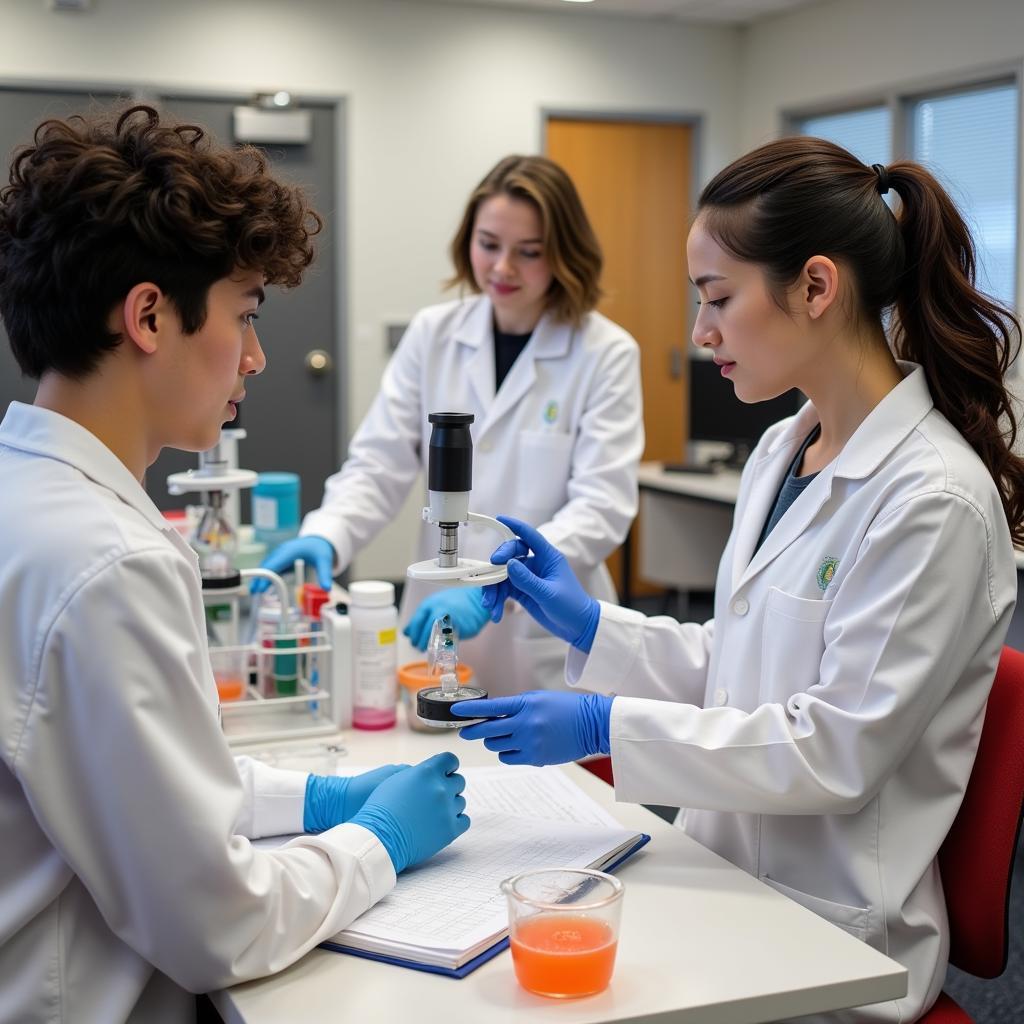The relationship between education systems and job market demands has become an increasingly common topic in IELTS Writing Task 2. Based on analysis of past exam questions, this theme appears in approximately 15-20% of recent tests, particularly in questions about technology, workforce development, and economic changes. Let’s explore this topic through actual exam questions and sample responses.
The influence of online education on lifelong learning has created new opportunities for education systems to evolve and meet changing workforce demands. This evolution is particularly crucial as we examine how educational institutions can prepare students for future employment.
Analyzing the Task 2 Question
Some people believe that schools and universities should focus on teaching practical job skills rather than theoretical knowledge to better prepare students for the modern job market. To what extent do you agree or disagree with this view?
This question requires candidates to discuss the balance between practical and theoretical education in the context of employment preparation. Let’s examine three sample responses at different band levels.
Band 8.5 Sample Essay
In today’s rapidly evolving job market, the debate between practical skills and theoretical knowledge has become increasingly significant. While practical job skills are undoubtedly important, I disagree with the notion that they should be prioritized over theoretical knowledge in educational institutions.
Theoretical knowledge forms the foundation for long-term career success and adaptability. In fields such as computer science, understanding theoretical concepts like algorithms and data structures enables professionals to learn new programming languages and adapt to technological changes more effectively. Similarly, how automation is affecting global employment demonstrates that workers with strong theoretical backgrounds can better navigate workplace transitions.
Moreover, theoretical education develops critical thinking and problem-solving abilities that are invaluable across industries. For instance, mathematics students learn abstract reasoning that can be applied to various professional contexts, from financial analysis to research and development. These fundamental cognitive skills remain relevant even as specific job requirements evolve.
However, this doesn’t mean practical skills should be neglected. Educational institutions should integrate both approaches, offering internships, project-based learning, and industry collaborations alongside theoretical coursework. This balanced approach ensures students develop both the practical competencies needed for immediate employment and the theoretical foundation for long-term career growth.
In conclusion, while practical skills are important, educational institutions should maintain a strong focus on theoretical knowledge while incorporating practical elements. This combination best prepares students for both immediate employment and future career advancement.
Band 8.5 Analysis
- Task Response: Clear position with well-developed arguments
- Coherence and Cohesion: Logical progression with effective use of paragraphing
- Lexical Resource: Sophisticated vocabulary usage
- Grammar: Complex structures used accurately
Band 6.5 Sample Essay
In the modern world, many people think schools should teach more job skills than theory. Impact of automation on employment opportunities shows that practical skills are important, but I partly agree with this idea.
First, practical skills help students find jobs quickly after graduation. When students learn things like computer programming or business management in a practical way, they can start working immediately. Many companies want workers who can do the job from day one without much training.
However, theoretical knowledge is also important. Students need to understand basic principles to solve new problems at work. For example, engineers need to understand mathematics and physics theories to design new products. Without this knowledge, they cannot be creative or innovative.
I think schools should teach both practical and theoretical subjects. Maybe they can have more practical classes in the final years of study, but theory should not be forgotten. This way, students can get jobs easily but also have knowledge for future career growth.
In conclusion, both practical skills and theoretical knowledge are necessary for students’ success in the job market. Schools should find a good balance between these two types of learning.
Band 6.5 Analysis
- Task Response: Position clear but could be more fully developed
- Coherence and Cohesion: Basic organization present
- Lexical Resource: Adequate but repetitive vocabulary
- Grammar: Mix of simple and complex structures

Key Vocabulary for This Topic
- adaptability (n) /əˌdæptəˈbɪləti/ – ability to adjust to new conditions
- theoretical knowledge (n) /θɪəˈretɪkəl ˈnɒlɪdʒ/ – understanding of concepts and principles
- practical competencies (n) /ˈpræktɪkəl kəmˈpiːtənsiz/ – hands-on skills
- workforce development (n) /ˈwɜːkfɔːs dɪˈveləpmənt/ – improvement of workers’ skills
- industry-relevant (adj) /ˈɪndəstri ˈreləvənt/ – applicable to current business needs
Practice Suggestions
Consider practicing with these related topics:
- The role of technology in modern education
- Balance between online and traditional learning
- Importance of lifelong learning in career development
Share your practice essays in the comments for feedback and discussion. Remember to maintain the recommended IELTS essay structure and aim for 250-300 words.